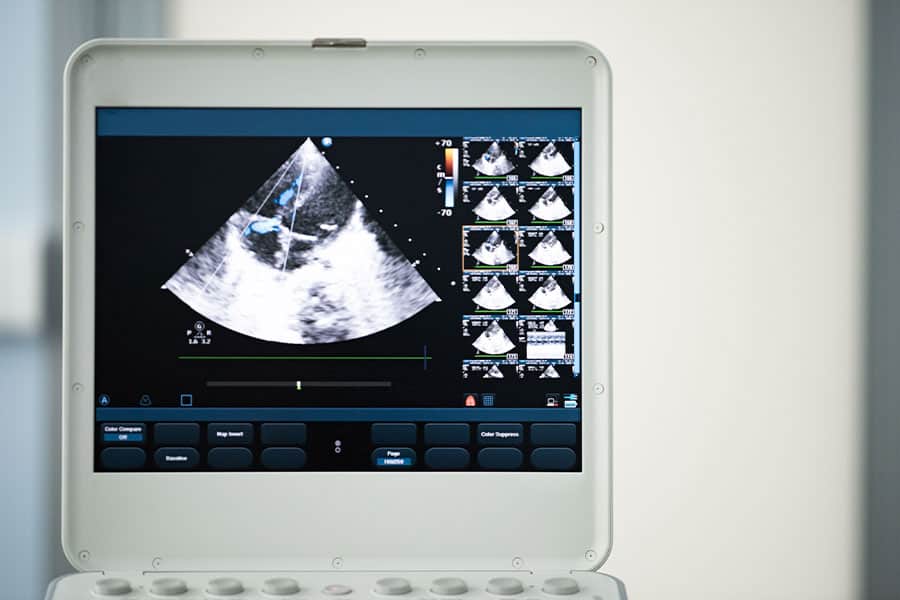Tricuspid valve regurgitation, also known as tricuspid valve insufficiency, is a heart condition in which the tricuspid valve does not close properly, causing blood to flow backward into the right atrium. This can result in a variety of symptoms, ranging from mild to severe, and may necessitate medical intervention.
Definition
The heart is a muscular organ responsible for pumping blood throughout the body. It consists of four chambers: the left atrium and ventricle, and the right atrium and ventricle. Blood flows through the heart in a specific sequence, regulated by four valves. The tricuspid valve is one of these valves, situated between the right atrium and ventricle. When functioning normally, the tricuspid valve allows blood to flow from the right atrium to the right ventricle, and then closes to prevent the blood from flowing back.
Tricuspid valve regurgitation occurs when the valve doesn’t close properly, allowing blood to leak back into the right atrium. This can cause increased pressure in the right atrium and other heart-related issues, which can potentially lead to more severe health problems if left untreated.
Overview
Tricuspid valve regurgitation can be categorized into primary or secondary, depending on its cause. Primary tricuspid valve regurgitation arises from structural abnormalities in the valve itself, while secondary regurgitation is usually a consequence of other underlying conditions that affect the right ventricle or the pulmonary system.
Symptoms
Symptoms of tricuspid valve regurgitation can vary depending on the severity and cause of the condition. Mild cases may not produce noticeable symptoms, but more severe regurgitation can result in:
- Fatigue or weakness
- Swelling of the legs or abdomen
- Shortness of breath, particularly with exertion
- Pulsations in the neck
- Heart palpitations
- Decreased urine output
Causes
Tricuspid valve regurgitation can result from a variety of causes, including:
- Congenital heart defects
- Endocarditis (infection of the heart valves)
- Rheumatic fever
- Trauma to the heart or chest
- Myxomatous degeneration (a condition that weakens the valve tissue)
- Carcinoid heart disease
- Use of certain medications or radiation therapy
- Secondary causes related to right ventricular dysfunction, pulmonary hypertension, or other systemic disorders
Risk Factors
Risk factors for tricuspid valve regurgitation include:
- Age
- History of heart disease or other heart conditions
- Congenital heart defects
- Rheumatic fever
- Endocarditis
- Substance abuse
- Medications that can damage the heart valves
How to Avoid It
Preventing tricuspid valve regurgitation involves addressing the risk factors and underlying causes of the condition. Some preventive measures include:
- Regular medical check-ups and heart examinations
- Treating and managing existing heart conditions
- Practicing good dental hygiene to prevent infections that can lead to endocarditis
- Avoiding excessive alcohol or drug consumption
- Regular exercise and maintaining a healthy diet
When to See the Doctor
It is important to consult a doctor if you experience any symptoms associated with tricuspid valve regurgitation, or if you have risk factors for the condition. Early detection and management can prevent complications and improve overall heart health.
Diagnosis and Treatment
Diagnosis of tricuspid valve regurgitation typically involves a physical examination, medical history review, and diagnostic tests such as an echocardiogram. Treatment options depend on the cause and severity of the condition and may include medications, lifestyle changes, or surgery in more severe cases.
In conclusion, Tricuspid valve regurgitation is a heart condition that can range from mild to severe and may be associated with various symptoms. Understanding the causes, risk factors, and symptoms of this condition is crucial for early detection and management. Regular check-ups, heart-healthy lifestyle choices, and prompt treatment of underlying causes can help prevent or manage tricuspid valve regurgitation and improve overall heart health.









